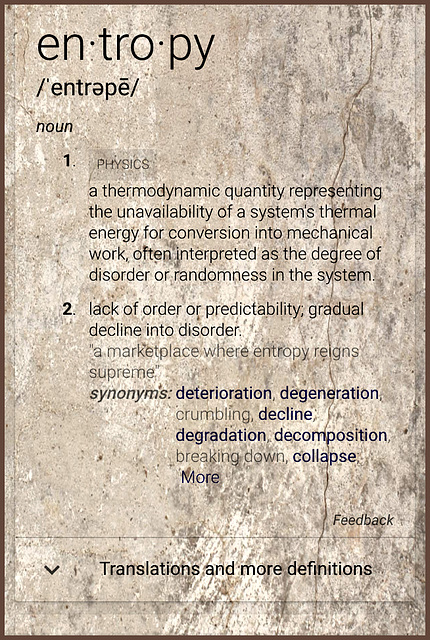Flowering Cherry
Spring firmament
Succession of persons
Eye Like Yours
Reading -- thinking, feeling, anticipating.....
Spring morning extravaganza
Morris Dance
Nefyn
Final vocabulary
Ironism
Redbuds ~ Arrival of the Spring
Arrival of the Spring
~ Reading ~
A garden ornament!
Photography on Aluminum
The Future of Life
Morning colours
At the Doctor's office
Box
Procrustes
THE BED OF PROCRUSTES
Frosty morning
On a cold morning
Chandelier
Corridor of power
A view of Michigan Avenue
The dome
Keywords
Authorizations, license
-
Visible by: Everyone -
All rights reserved
- Photo replaced on 18 Apr 2017
-
142 visits
- Keyboard shortcuts:
Jump to top
RSS feed- Latest comments - Subscribe to the comment feeds of this photo
- ipernity © 2007-2024
- Help & Contact
|
Club news
|
About ipernity
|
History |
ipernity Club & Prices |
Guide of good conduct
Donate | Group guidelines | Privacy policy | Terms of use | Statutes | In memoria -
Facebook
Twitter



It is by avoiding the rapid decay into the inert state of 'equilibrium' that an organism appears so enigmatic; so much so, that from the earliest times of human thought some special non-physical or supernatural force (vis viva, entelechy) was claimed to be operative in the organism, and in some quarters is still claimed.
How does the living organism avoid decay? The obvious answer is: By eating, drinking, breathing and (in case of plants) assimilating. The technical term is 'metabolism'. The Greek word (μεταβολισμός) means change or exchange. Exchange of what? Originally the underlying idea is no doubt, exchange of material. (E.g., the German for metabolism is 'Stoffwechsel.) That the exchange of material should be the essential thing is absurd. Any atom of nitrogen, oxygen, sulphur, etc., is a good as any other of its kind; what could be gained by exchanging them? For a while in the past our curiosity was silenced by being told that we feed upon energy. In some very advanced country (I don't remember whether it was Germany or the U.S.A or both) you could find menu cards in restaurants indicating, in addition to the price, the energy content of every dish. Needless to say, taken literally, this is just as absurd. For an adult organism the energy content is as stationary as the material content. Since, surely, any calorie is worth as much as other calorie, one cannot see how a mere change could help.
What then is that precious something contained in our food which keeps us from death? That is easily answered. Every process, event, happening -- call it what you will; in a word, everything that is going on in Nature means an increase of entropy of the part of the world where it is going on. Thus a living organism continually increases its entropy -- or, as you may say, produces positive entropy -- and thus tends to approach the dangerous state of maximum entropy, which is death. It can only keep aloof from it, i.e., alive, by continually drawing from its environment negative entropy -- which is something very positive as we shall immediately see. What an organism feeds upon is negative entropy. Or, to put it less paradoxically, the essential thing is metabolism is that the organism succeeds in freeing itself from all the entropy it cannot help producing while alive. ~ Page 70 / 71
Sign-in to write a comment.